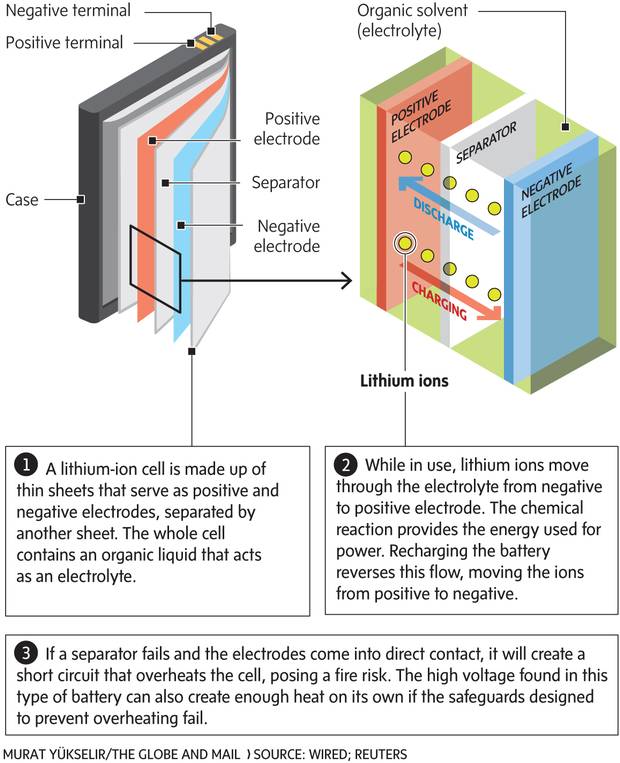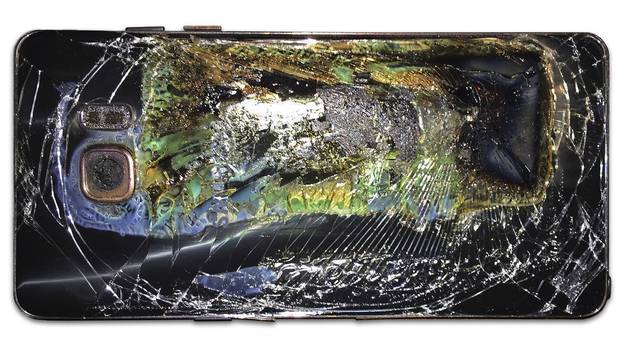Samsung Electronics Co. Ltd. is stopping production of the Galaxy Note 7, one of its most popular smartphones, after being unable to halt a rash of spontaneous fires and explosions.
How many consumers are affected?
In September, the company recalled 2.5 million of the devices to replace batteries that were catching on fire, but after reports replacements also burst into flames, the company discontinued the product. Estimates are that four million of the devices were sold worldwide.
"
[We] have decided to halt production and sales of the Galaxy Note 7 in order to consider our consumers' safety first and foremost," the South Korean firm said in a filing to the Seoul stock exchange.
Starting on Oct. 13, at their point of purchase, Samsung Note 7 owners can bring their device in for an exchange to a Galaxy S7 or Galaxy S7 edge device or a full-device hardware and Note 7-specific accessories refund.
What led to Samsung scrapping the Galaxy Note 7, its flagship phone
0:55
How much will this cost Samsung?
Investors burned off $20-billion (U.S.) of Samsung Electronics' market value on Tuesday as its shares closed down 8 per cent, the biggest single-day decline since 2008. The company expected to sell upwards of 12 million Note 7s, and analysts at Nomura Holdings Inc. have predicted that if the model cannot be rehabilitated and sold to consumers, it could cost Samsung $5-billion in operating profit.
How popular is Samsung?
Samsung is the smartphone market-share leader in almost every region outside of North America and Japan (where Apple is top dog) and China's fragmented market, which is owned mainly by Chinese brands like Huawei, Oppo and Xiaomi.
According to IDC Canada, 4.9 million smartphones were sold in Canada in the first half of 2016, and 36.7 per cent of which were Samsung models. Typically, the Note has made up to 10 per cent of Samsung's smartphone unit sales worldwide.
What does this mean for Canadians?
Canada's Big Three national carriers – BCE Inc., Rogers Communications Inc. and Telus Corp. – have stopped selling the Note 7. BCE says it will refund customers or exchange for another device at the store where they bought the Note 7, while Telus says it is "working on a refund or exchange process and will provide details as soon as possible." Rogers says customers can bring their Note 7 back to the store where they got it for a refund or exchange, and those who ordered one online can "call us to start the exchange or refund process."
As of Sept. 12, Health Canada reported Samsung had sold about 21,953 Note 7s in Canada, and about one million in the United States. That was with less than a month in the market, but it is still not a huge number in Canada's overall wireless market of about 29 million subscribers.
So the Note 7 will not be part of the carriers' lineup for the holiday season, but smartphones from Samsung and other companies can likely fill that gap.
"Samsung's a great partner and one of our top selling mobile brands, we expect that to continue," BCE spokesman Mark Langton said on Tuesday.
Why are the phones exploding?
The volatile chemistry of lithium-ion batteries is well-known to electronics manufacturers. In late 2015, the "hoverboard" self-balancing scooter fad was derailed by dozens of li-ion battery failures and fires, and even Apple's iPhone had reports of a few battery fires in 2015 and 2016.

A li-ion battery is essentially a layer-cake of different materials: a positive electrode (often made of lithium iron phosphate), a negative electrode (usually made of carbon), and in between them a chemical or liquid electrolyte. Pure lithium is unstable and highly reactive, and the electrolytes are often such volatile chemicals as dimethyl carbonate (DMC), ethyl methyl carbonate (EMC), which can hit flashpoints at room temperature (between 16 and 33 C). Anything that punctures the layers that separate these materials can become a "hot spot" for electrical current and cause the battery to explode. After li-ion battery fires in laptops in 2007, researchers looked for ways to monitor and stop the formation of metallic fibres, called dendrites, that can grow inside the batteries and cause short-circuits.
It is not clear exactly what is wrong with Samsung's batteries, but something is compromising those layers – which do not fail in most li-ion batteries.
Maybe we should not use these batteries?
Do not count on a switch away from li-ion soon: Despite the risk of fire, they are the dominant power cell in mobile phones and electric cars. Allied Market Research estimates the global market for lithium-ion batteries will generate $46-billion in revenue by 2022, up from $29-billion in 2015. Samsung SDI Co. Ltd. is one of the big four battery makers, with Panasonic Corporation, Automotive Energy Supply Corporation (AESC) and LG Chem Power.
What happens now?
Tuong H. Nguyen, mobile technology analyst at Gartner Research, expects rivals such as LG, Lenovo and Huawei to try to capitalize on Samsung's weakness. While the Note is a premium-priced device, he does not think Apple is likely to pick up many old Note customers given the steep price differential. Canadian carriers were selling the Note 7 for about $550 (Canadian) on a two-year contract and $1,050 to purchase the device outright. The latest iPhone costs up to $1,300.
The U.S. Consumer Product Safety Commission said Samsung was making the right decision by halting sales and exchanges of the device.
"No one should have to be concerned their phone will endanger them, their family or their property," CPSC chairman Elliot Kaye said in a statement.
With reports from Christine Dobby and Reuters
MORE ON SAMSUNG


